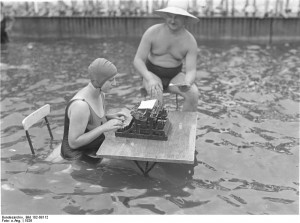21st Century Learning:
Research and Praxis
During the summer of 2013, I pursued 21st century learning by attending conferences, conducting research and analysis, teaching USC undergraduates, editing final proofs of two pieces for which I am the lead author, and continuing formative dissertation work.
At the 63rd annual International Communication Association conference in London, I moderated a panel at the Children and Media division’s pre-conference and, for the Global Communication and Social Change division, co-presented a paper that outlined a participatory research methodology (cultural beacons) developed by my colleagues and myself. Later in the summer, I co-led a workshop at the National Association for Media Literacy Education conference that introduced media literacy educators to improvisation as a pedagogical strategy. At every session, my participatory style engaged audience members and helped to create a learning community.
In terms of research and analysis, I pursued several projects. Immediately after LAUSD educators closed down their classrooms for the summer, I invited back to the Annenberg Innovation Lab nine prior participants of the PLAY! project. Within the context of semi-structured, one-on-one interviews, I asked each educator if and how their engagement in the PLAY! program (Summer–Fall 2011) had affected their work. I have identified three key themes and will continue to mine this rich corpus in order to generate an executive summary as well as a longitudinal article for a peer-reviewed journal.
In Paris, I met with my former RAES supervisor (and Annenberg graduate) Alex Rideau in order to discuss a follow-up publication to our Summer 2010 collaboration and 2012 book chapter. This next piece will target a popular press outlet and describe how his sub-Saharan non-profit has continued to innovate and generate, despite the global economic slowdown and physical absence of Western researchers.
Finally, I sought to discover both participants’ and instructors’ learning and growth from engaging in an improvisational theater summer program – Laughter for a Change at Koreatown Youth Community Center (L4C at KYCC). I discussed the program and its goals with the L4C founder and L4C at KYCC head teacher, constructed evaluation instruments, distributed pre/post surveys to participants, observed the first and last day of the summer workshop (completing observation inventories and jotting field notes), attended the final performance, and jointly interviewed the two instructors. I have transcribed this interview and will analyze participants’ (anonymously identified) self-reported changes.
I had the honor of teaching COMM 204: Public Speaking. Via improv warm-ups, personal storytelling, and unconditional support, my students and I developed a safe and caring classroom in which the skills of every participant flourished.
I also delivered final revisions to a peer-reviewed journal article about the impacts of participation in L4C’s year-long, after-school workshop at RFK Community Schools, and a book chapter about the ways in which to design, implement, and evaluate research with cultural beacons.
My pedagogically-oriented research and praxis informs my dissertation on 21st century learning. This dissertation examines an original, online curriculum that seeks to enhance undergraduates’ social and emotional competence by offering opportunities to practice skills in real-world contexts, think with/through media, and participate in a hybrid (both online and offline) community of practice.


